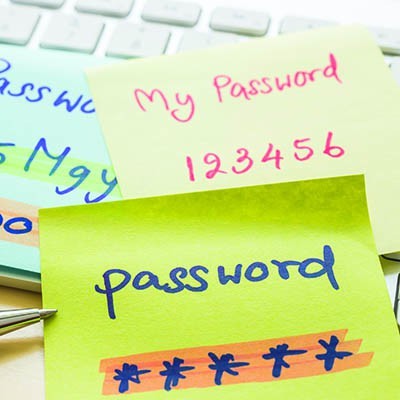Directive Blogs
Can Apps Provide Secure Password Management?
Do you use different passwords on every account you’ve created? Are these passwords sufficiently complex? Chances are at some point you have used a repeating password. Remembering 35 different logins for 35 different applications is hard enough, so it’s not surprising that the majority of people will use the same password for many applications. Bad password practices are all too common. So, how can you fix this?
The solution is implementing a password management system. A password manager is ideal for any business, providing an array of features which can further enhance your password practices. First, let’s talk about what a Password Management System is.
Password Management Business Solutions
Password management is exactly what it sounds like -- a program that stores passwords for you. By storing passwords, it allows users to create custom passwords without the worry of forgetting them. What’s worse than forgetting passwords? Storing passwords in an unsecure document. Therefore, for any business owner password management is the ideal solution. Password management systems do not compromise security in exchange for convenience.
These programs often contain tooling which assists in starting and maintaining excellent password practices.
Which Password Manager is Right for Me?
Although many different options are available when choosing a password management system, your business should select a system that maximizes not only security, but also productivity.
Security
Your business should never sacrifice security when choosing what is supposed to be a beneficial program. These programs remind you of best practices, giving the user an alert if passwords are too similar. They should require a multi-factor authenticator in order to be accessed.
Perhaps most importantly, these programs should store all but one password - the password to the program itself.
The hidden behind-the-scenes security should also be a major factor in choosing a program. Your password management system should be protected by role-based access, secure cloud storage, and encryption.
Without these security features, your password management system is nothing but an open document for anyone to view all of your passwords.
Storage Considerations
Like all things, there are pros and cons associated with choosing a storage method. Here are the two common methods passwords are stored: in the cloud or kept natively on your device. So, which one is right for you?
Storing passwords in the cloud gives businesses the ability to access these credentials on any device. This also means anyone unauthorized who gains access to the cloud, is also able to access these credentials. Likewise, storing passwords on an in-house device leaves businesses susceptible to device failure, or being burglarized.
The storage method is important to understand, but not a critical factor in choosing a password management system.
Usability
Implementing this new program would be rendered useless if, well, it isn’t used. While password management systems once had a reputation for being overly complicated and difficult to set up; this is no longer an issue with the modernization of these systems. Simplicity is an important factor when implementing new software into the office. It should be simple to add or remove business’ accounts, but also easy to update credentials. Password management systems should offer a feature which automatically logs users into a website or application. If accessing a new application, the tool should offer to save these credentials for future access.
Directive is familiar with a wide variety of password management platforms and maintaining these systems. Our experts have enough experience to assist your business in choosing and implementing the correct solution for your needs. Call 607.433.2200 to speak to one of our experts.


